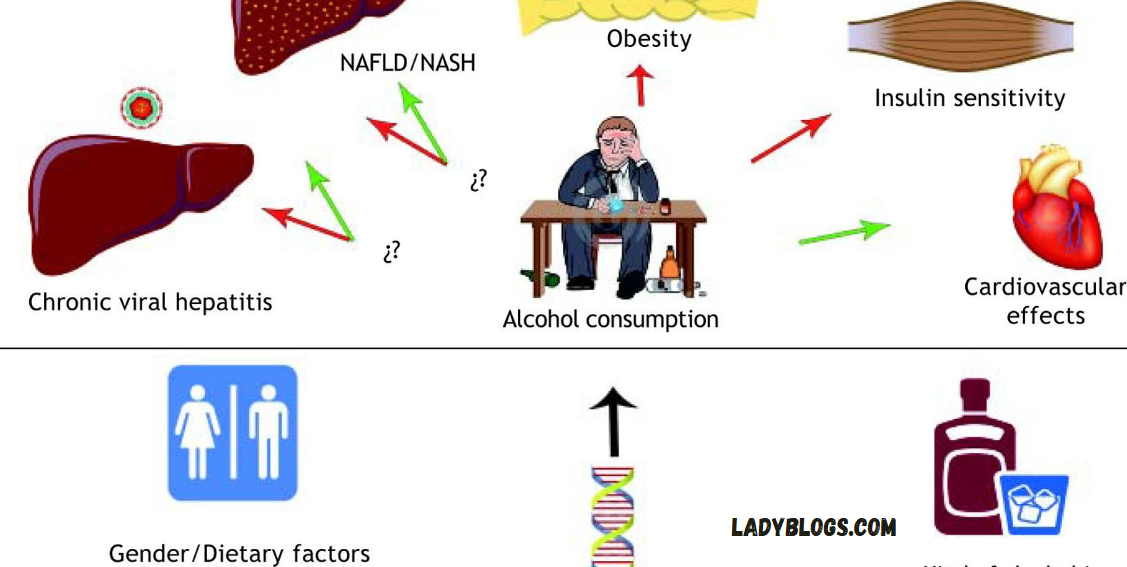The number of new dementia cases diagnosed annually in the United States is projected to double by 2060, reaching 1 million cases per year. Various factors contribute to dementia risk, but emerging research suggests that diet may play a significant role.
A recent study has highlighted that individuals who consume higher amounts of red meat, particularly processed red meat, may face an increased risk of dementia and cognitive decline compared to those who eat little to no red meat. These findings build on earlier research presented at the Alzheimer’s Association International Conference in Philadelphia in July 2025. The latest results were published on January 15, 2025, in Neurology.
“Red meat is rich in saturated fats, which previous studies have shown to raise the risk of type 2 diabetes and heart disease—both of which are linked to poor brain health,” said Dong Wang, MD, ScD, senior author of the study and a researcher at Brigham and Women’s Hospital in Boston, as well as an assistant professor of medicine at Harvard University.
The study also offers a hopeful perspective, indicating that replacing processed red meat with healthier alternatives, such as nuts, fish, and poultry, may help reduce the risk of cognitive decline and dementia.
Processed red meat increases dementia risk by 13%
In the study, Wang and colleagues followed a cohort of 133,771 individuals with an average age of 49, all of whom were dementia-free at the study’s onset. Participants were monitored for up to 43 years, with 11,173 developing dementia over the course of the study.
Every two to four years, participants were asked to maintain a food diary, detailing their dietary habits and frequency of consumption. The researchers classified unprocessed red meat as beef, lamb, pork, or hamburger, while processed red meat included hot dogs, sausages, salami, bacon, bologna, and other processed meat products. A serving was defined as 3 ounces, approximately the size of a deck of cards.
To account for other potential factors influencing cognitive decline, the researchers adjusted for variables such as age and sex. Their findings revealed that participants who consumed the highest amounts of processed red meat had a 13% higher risk of developing dementia compared to those who ate the least. However, no significant difference in dementia risk was observed between participants who consumed less than half a serving of unprocessed meat per day and those who ate one or more servings daily.
How processed red meat affects cognitive function
Subjective cognitive decline refers to a person’s self-reported concerns about memory or thinking problems, even before these issues are evident on standard cognitive tests.
To assess this, the researchers examined a group of more than 43,000 individuals with an average age of 78. Participants completed surveys twice during the study, rating their own memory and thinking abilities.
After adjusting for age, sex, and other risk factors, the researchers found that those who consumed an average of 0.25 servings or more of processed red meat per day had a 14% higher risk of subjective cognitive decline compared to those who ate less than 0.10 servings daily.
For objective cognitive function—how well the brain can solve problems, remember, and think—the researchers enlisted more than 17,000 participants, all female, with an average age of 74. These individuals underwent memory and thinking tests four times during the study period.
After accounting for factors like age and sex, the researchers concluded that higher consumption of processed red meat was linked to accelerated brain aging. Specifically, greater processed meat intake was associated with an acceleration of overall cognitive ability (global cognition) by 1.61 years per additional serving of processed red meat consumed daily. Furthermore, each additional serving of processed red meat was associated with a 1.69-year increase in the aging of verbal memory, which refers to the memory of words and language.
May You Also like it:
Moderate Alcohol Consumption Health Risks
5 Ways to Use Psychology to Develop New Habits
The link between diet and dementia
Experts not involved in the study suggest that the findings are consistent with existing knowledge about the negative effects of processed red meat on brain health.
“It is not surprising that processed red meats can negatively impact brain function,” said Dr. Jasmin Dao, a pediatric and adult neurologist at Miller Children’s & Women’s Hospital and MemorialCare Long Beach Medical Center in California. “Processed red meats are often high in fats, sodium, and sugars, all of which are known to have adverse effects on the body.”
Dr. Dao emphasized that research into the connection between diet and dementia is still evolving, but many studies indicate that dietary choices can significantly influence brain health. “Healthy eating has been associated with improvements in cognitive processing. Conversely, increased intake of ultra-processed foods—those containing artificial colorings, additives, or high fructose corn syrup—can damage brain cells and contribute to cognitive decline and dementia,” she explained.
The study adds to a growing body of research examining the health impacts of red and processed red meat consumption. Dr. Dana Hunnes, a senior dietitian at the UCLA Fielding School of Public Health, noted, “It is well-established that red meat, especially processed varieties, is highly inflammatory and linked to increased risks of type 2 diabetes, cardiovascular disease, and potentially the development of plaques in the brain, which are associated with dementia and cognitive decline.”
Dr. Hunnes also pointed to the role of trimethylamine N-oxide (TMAO), a compound associated with higher risks of dementia and Alzheimer’s disease. “The higher sodium content in processed red meats raises blood pressure, reduces blood flow to the brain, and may contribute to vascular dementia,” she added. “Given these established associations, the study’s findings are not surprising.”
Can you eat red meat and still be healthy?
For individuals who choose to consume red meat, experts recommend reducing its quantity as a strategy for supporting cognitive health. The study revealed that replacing one serving of processed red meat per day with legumes or nuts was associated with a 19% reduction in dementia risk and a 1.37-year slower rate of cognitive aging. Substituting processed red meat with fish resulted in a 28% reduced risk of dementia, while swapping it for chicken led to a 16% lower risk.
Heather M. Snyder, PhD, senior vice president of medical and scientific relations at the Alzheimer’s Association, emphasized the importance of a balanced diet in promoting cognitive health, though she was not involved in the study. “We have long encouraged a balanced diet that includes less processed food to ensure our bodies get the necessary nutrients, as this has been linked to a lower risk of cognitive decline,” she told Healthline. Snyder added that as research progresses, more dietary patterns may emerge that influence dementia risk. “There isn’t one single food or ingredient that, based on rigorous scientific research, has been proven to cause, prevent, treat, or cure Alzheimer’s or other dementias,” she said. “It is unlikely that any one food will have a significant impact on such a complex disease.”
Associate Professor Michael Woodward, MD, an honorary medical advisor for Dementia Australia and head of Aged Care Research and the Memory Clinic at Austin Health in Melbourne, Australia, acknowledged that diet is a crucial factor in cognitive health, but cautioned that red meat is only one piece of the dementia risk puzzle. Woodward, who was also not involved in the study, noted, “Diet is definitely a protective factor against cognitive decline, while poor diet increases risk. Weight, which is often tied to diet and exercise, also plays a role.”
He recommended adopting a Mediterranean-style diet to reduce cognitive decline risk, emphasizing vegetables, fish, legumes, nuts, and olive oil as staples, along with moderate consumption of white meat like fish and chicken. “A Mediterranean diet is certainly beneficial,” Woodward said. “While some red meat can fit into a Mediterranean diet, large amounts of meat, fat, and starch may be cause for concern.” He concluded, “I wouldn’t advise people to automatically eliminate red meat to lower their risk of cognitive decline. We need to consider overall brain health, not just red meat consumption.”
Frequently Asked Questions
Does eating red meat increase the risk of dementia?
Recent studies suggest that consuming higher amounts of processed red meat may increase the risk of dementia and cognitive decline. Processed red meats, such as hot dogs, sausages, and bacon, are often high in fats, sodium, and sugars, which are associated with adverse effects on brain health.
What is the difference between processed and unprocessed red meat?
Unprocessed red meat includes beef, lamb, pork, and hamburger, while processed red meat refers to meats that have been preserved through methods like smoking, curing, or adding preservatives. Examples of processed red meat include hot dogs, sausages, bacon, and salami.
How much red meat is considered too much?
The studies suggest that consuming high amounts of processed red meat, such as one or more servings per day, may increase dementia risk. A serving is typically considered 3 ounces, roughly the size of a deck of cards. However, moderate amounts of unprocessed red meat seem to have no significant effect on dementia risk.
What alternatives to red meat can help reduce dementia risk?
Replacing processed red meat with healthier alternatives such as nuts, legumes, fish, and poultry has been linked to a reduced risk of dementia. For instance, swapping one serving of processed red meat with a serving of fish resulted in a 28% reduced risk of dementia in the study.
How does diet influence cognitive health?
Experts emphasize that a balanced diet rich in vegetables, fruits, fish, and healthy fats—like those found in the Mediterranean diet—can support brain health and may reduce the risk of cognitive decline. Diets high in processed foods and red meat, on the other hand, may contribute to cognitive decline and dementia.
Should I eliminate red meat to lower my risk of dementia?
It is not necessary to eliminate red meat to reduce the risk of cognitive decline. Experts suggest that moderating red meat consumption, mainly processed varieties, and focusing on a balanced, nutrient-rich diet is a more effective strategy for protecting brain health.
Are there other lifestyle factors that impact dementia risk?
Yes, factors such as maintaining a healthy weight, engaging in regular physical activity, managing chronic conditions like diabetes and heart disease, and staying mentally active are all critical for reducing dementia risk. A healthy diet is just one piece of the puzzle.
Is there a single food or ingredient that causes or prevents dementia?
Currently, no single food or ingredient has been scientifically proven to prevent or cure dementia. Research suggests that overall dietary patterns, such as those promoting balanced nutrition and low levels of processed foods, play a more significant role in brain health.
Conclusion
Emerging research suggests that higher consumption of processed red meat may increase the risk of dementia and cognitive decline, likely due to the negative impact of fats, sodium, and preservatives commonly found in these foods. While moderate amounts of unprocessed red meat do not seem to pose the same risk, replacing processed red meat with healthier alternatives, such as nuts, legumes, fish, or poultry, may help reduce dementia risk and slow cognitive aging.
Experts emphasize that diet plays a vital role in brain health, with balanced, nutrient-dense eating patterns—such as those found in the Mediterranean diet—offering protective benefits against cognitive decline. While no single food can be pinpointed as a definitive cause or cure for dementia, adopting a diet that prioritizes whole, minimally processed foods, along with other healthy lifestyle factors, may significantly reduce the risk of dementia and promote overall cognitive well-being.





